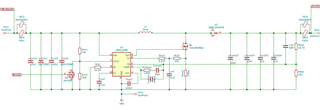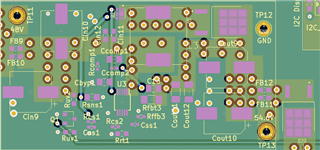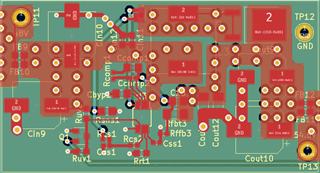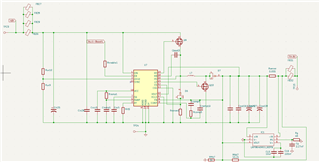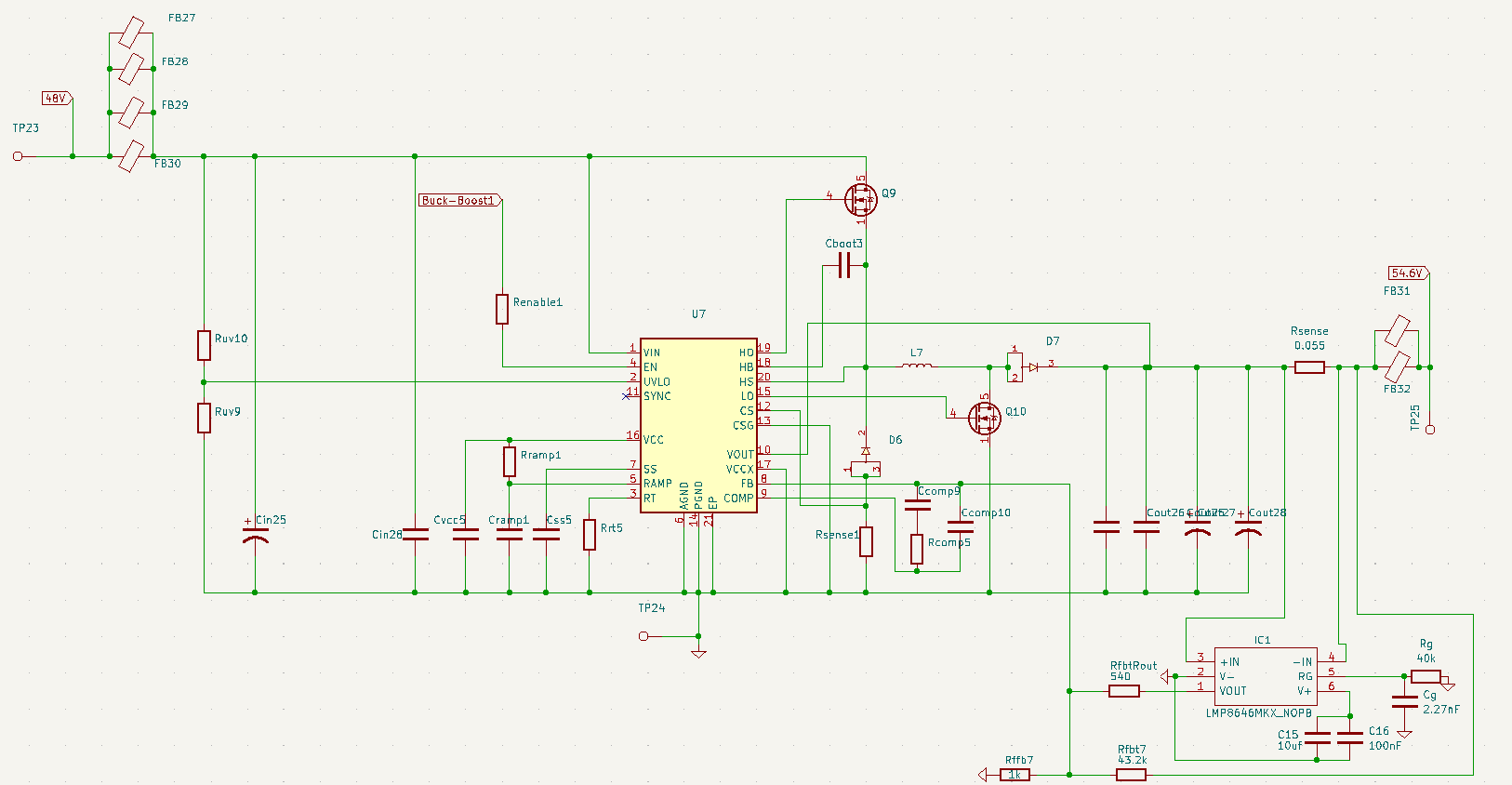Other Parts Discussed in Thread: LM317HV, LM317, LMP8646, LM5177, LM5118
Hello Team,
We have a battery of upper charge limit 54.6. The input is 48V from an adapter. We want to charge it with a max 3A current limit.
We came up with the idea of using the LM5022 as a Constant Voltage source and then use a current limiter circuit. We want to add the LM317HV LDO as a constant current source whose input would be from the LM5022 output. The LM5022 would be turned on with the help of EN pin
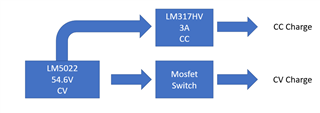
We require help in verifying if this set up would work.
Thanks


